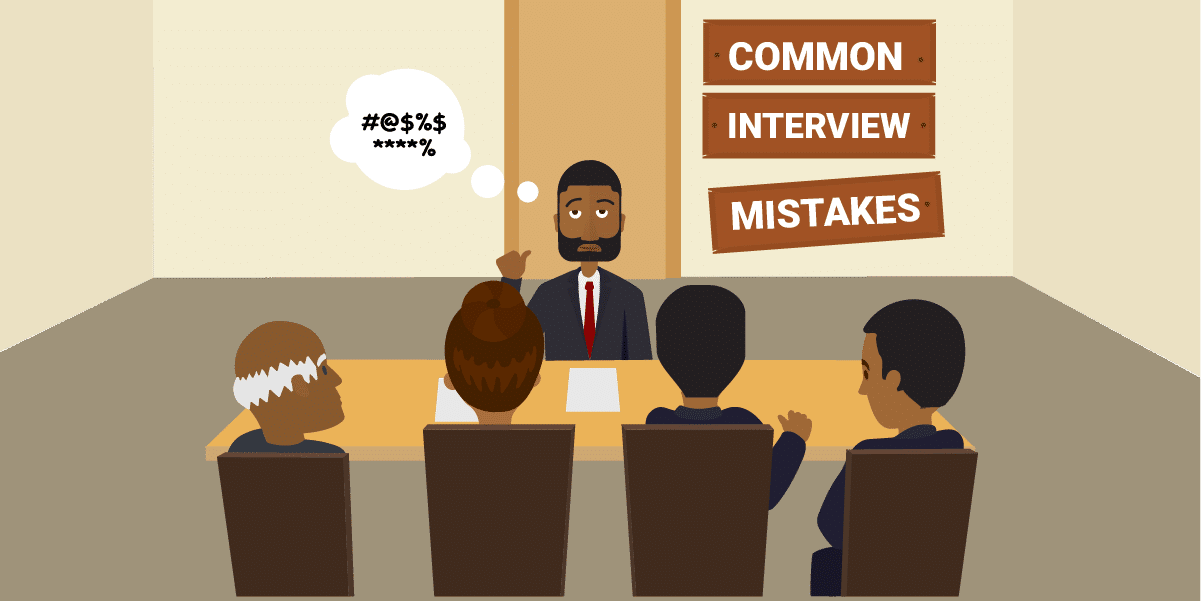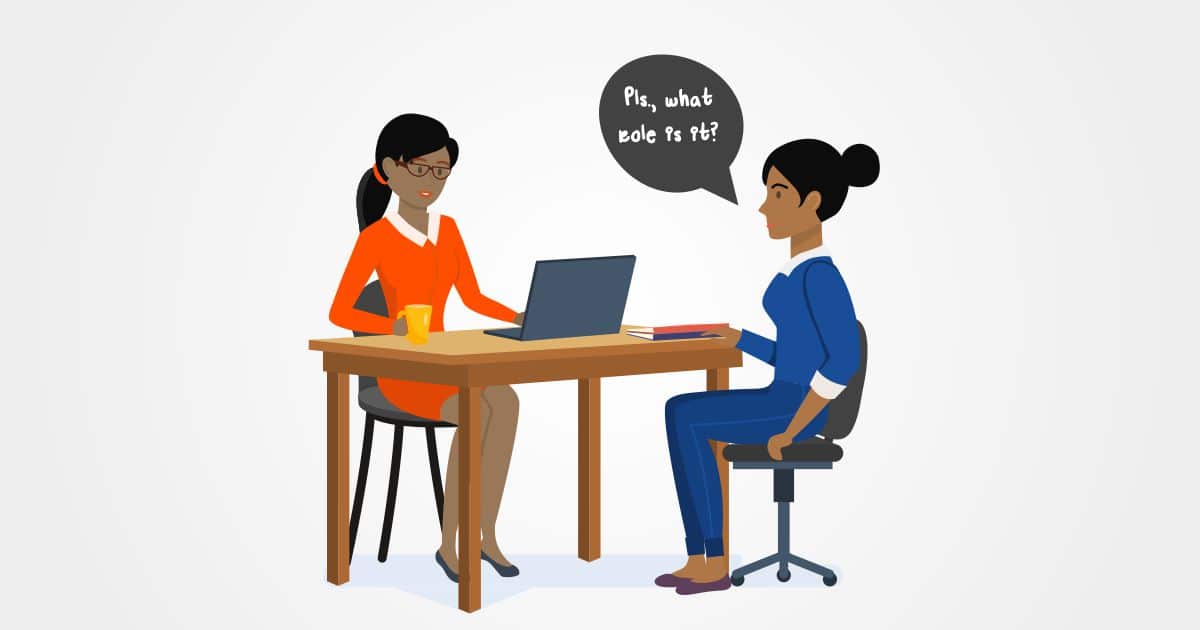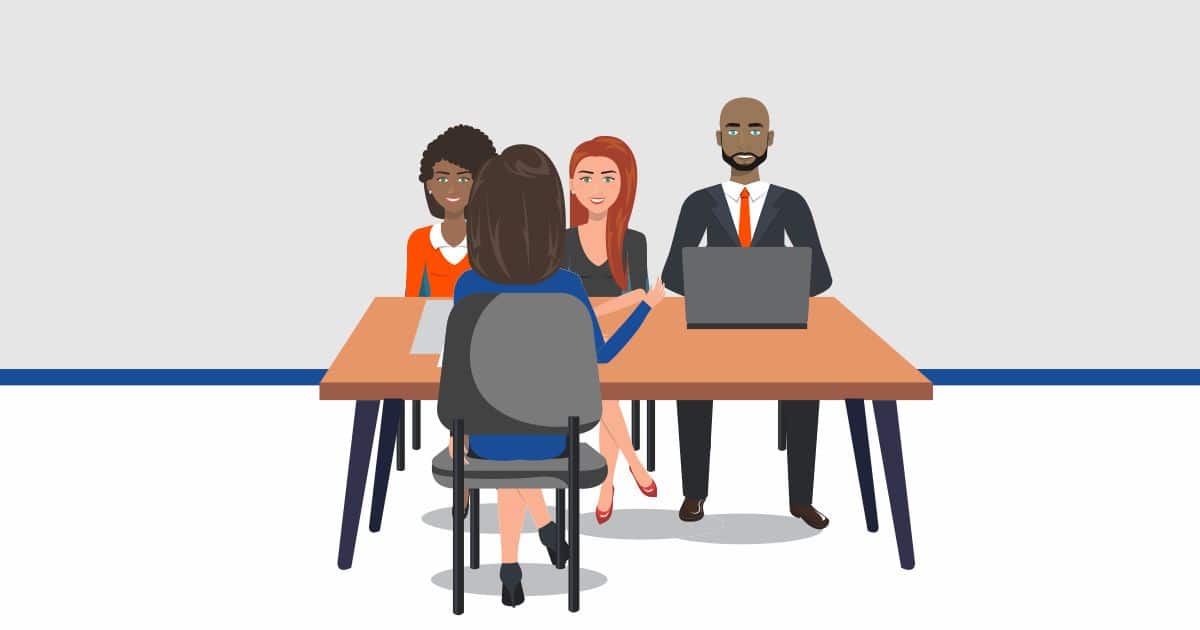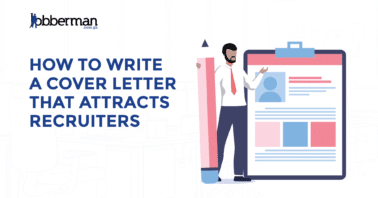The interview stage is critical in recruitment as it gives employers an opportunity to ascertain what the resume portrays. This means that it is critical that you are ready for the interview, and most importantly that you avoid certain mistakes that could make you lose the opportunity.
We have come up with the most common interview mistakes that candidates make so that you may be aware and avoid them. While you prepare, we also created a list of things you never say in an interview.
Table of Contents
1. Failing to conduct Research
You shouldn’t just wake up and go for an interview without at least knowing a few basic things about the company and the position. Take your time to find out what the company does, what the role is about and then try and align it with your qualifications and experience. The more information you have about the potential employer, their clients and their product, the better for you. Bear in mind that you are interviewing the company as they interview you. you also would like to find out if the culture, working environment and values are good for you. research helps you establish that.
2. Talking Ill About Previous Employer
Dropping negative vibes about your previous employer can shift gears in an interview session and spin the odds against your favour. Speaking negatively about another employer makes your interviewer wonder whether you might speak ill of them when you leave. It also portrays you as a negative, vindictive and petty person. since more employers are now looking at soft skills in candidates these days, it might cost you the opportunity you are interviewing for.
3. Sharing Too Much Information
questions asked by interviewers are to gauge your suitability for the role and your fit in the company’s culture. You should answer these questions comprehensively and accurately. It is, however, prudent to draw a line between what is appropriate and what is just too much information. So, how can you tell whether you are crossing the line? First, you can time your answers to a minute, at most a minute and a half for when you need to cite examples. You can also read your interviewer’s body language, are they starting to get uncomfortable? do they look satisfied with your response? it is probably time to stop.
4. Failing To Ask Questions
Answering interview questions is just part of the interview. The other part is asking questions when it’s your turn. You can conduct as much research as you want about a role, but you might not get all the answers you need to make your decision once an offer is made. Use the time during an interview to ask questions about the role, management, projects you might participate or spearhead, the culture of the organisation, working hours, among other aspects of the employee life.
5. Wrong Body Language
Body language is critical when dealing with people. You may be saying something, but your body language says another. your eye contact, facial expressions, gestures and even sitting position may say a lot about your attitude, readiness and even confidence levels. If you feel something about your body language is wanting, start working on it by using friends and colleagues to give you feedback.
6. Telling Fibs
As tempting as falsifying information to suit the requirements of a role may be, please desist from fabricating or embellishing information. The truth somehow finds its way out and will work against you. Telling lies is not only unethical, but it could get you in legal trouble as well. Honesty remains the best policy.
7. Poor Timing in Salary Discussion
While remuneration is an important part of the interview discussion, ensure that you are not the first to raise it, unless the discussion comes to an end and it hasn’t been raised yet.
5 Things You Never Say At An Interview
Interviews are nerve-racking for most people, and where the nerves are all over the place, a candidate can land his foot in his mouth and ruin things for himself. For a job interview candidate, keeping your cool can never be overstated and no matter how nervous you are, don’t let it show. Here are
1. Thank you very much for the question
People usually say this to buy time when they do not have an immediate answer to the question. The problem is that this is a tired trick that practically everyone knows and admitting that you have been thrown off by the question is not a good look. Also, thanking someone for asking you a question sounds a bit ridiculous or patronizing at best. No matter how you consider it, it doesn’t seem like a good idea to thank the panel for each of the questions they ask so its best to not say ‘’Thank you for the question”.
2. Please, what role is it?
This is the topmost among things you never say in an interview; it betrays a lack of interest in the position, the company and the interview process as a whole. At every interview, the panel expects you to be armed with knowledge about the role and even the industry at large, so showing up without knowing what you are showing up to is a bad look. In these days where you can apply for several jobs online in a few minutes, it is possible to not know what role you have been called to interview for, but those enquiries should be made before the day of the interview. Ask whoever called or emailed to invite you for the interview to provide further details before you show up.
3. I haven’t really done this before…
If you have been honest on your resume, the panel is already aware where your competencies lie. Telling the panel that you are not qualified for the role is you making excuses even before you start the job. Use your previous experiences to answer all the questions to the best of your abilities without giving disclaimers regarding why your answers might be wrong. Granted that you may have applied for several jobs that may not match your skill set exactly but you still have to prepare for the interview and put in a lot of effort
4. You won’t find anyone more qualified
Confidence is great for a job interview but when it crosses the line into conceitedness, it is a turn off for many interviewers. No matter how qualified you seem for the position, comparing yourself to all the other applicants is in poor taste. Instead of talking about others, talk about how qualified you are for the position and exactly what makes you qualified. Even if you turned out better than all the other candidates, you have betrayed a condescending attitude which may likely not go down well with the panel.
5. I have no idea
You are most likely being hired for the skills and ideas you bring to the team, and the interview is where you pitch your ideas on how you can meaningfully contribute to the organisation. When you have no idea what the answer to a question is, tell the panel you are unsure and still present what idea you have. Let the panel know that you have put some thought and effort into answering the question, even though it is unfamiliar territory.














